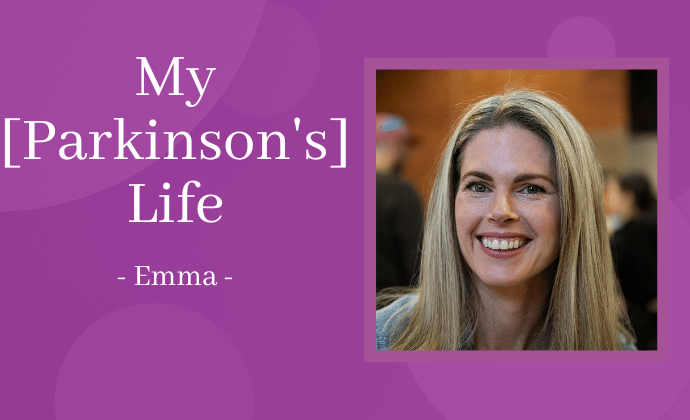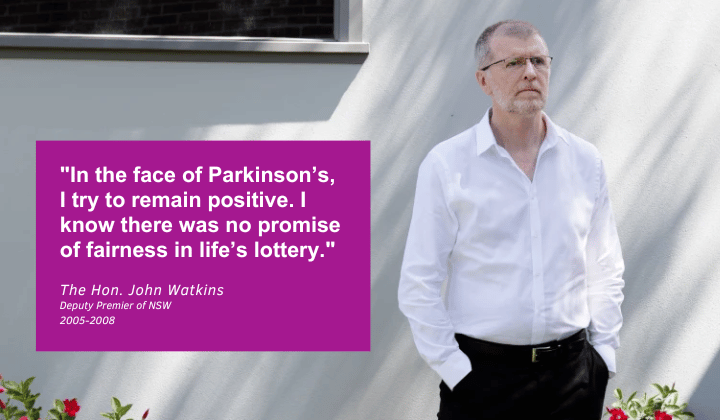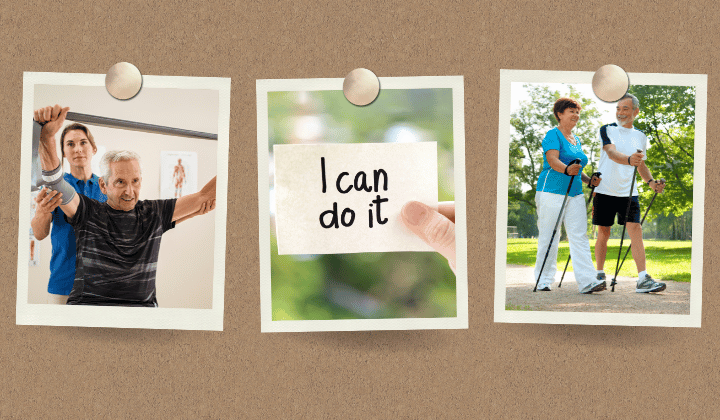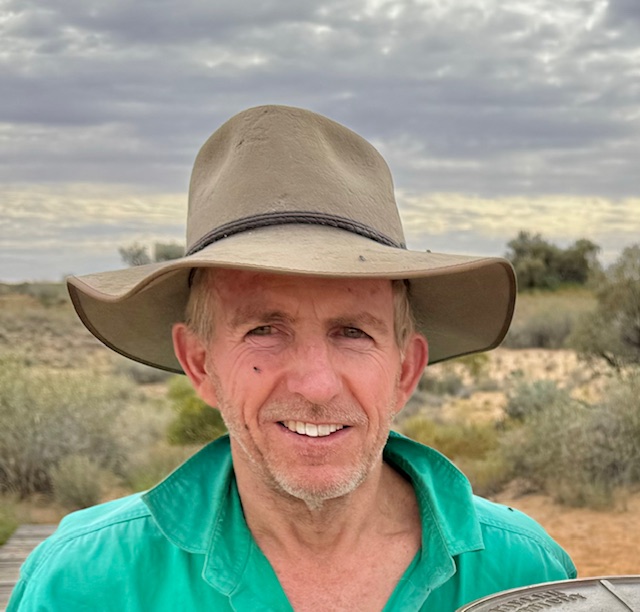Learning to live with PD is like trying to tame a beast. It has its ups and downs and is constantly changing
Emma grew up on the Central Coast of New South Wales, enjoying school life near the beach and thinking that being a flight attendant would be a perfect career.
“Travel and seeing the world was my passion back then,” Emma recalls. “When I left school, I joined Contiki (an international travel company) in Sydney and eventually worked in Europe for them for three summers as a site rep in Antibes (on the French Riviera) and then as a mobile cook on their camping tours. I came back to Australia and worked at Flight Centre for a couple of years afterwards.”
A marriage and two children followed, the girls now aged 11 and nine. But it was a couple of months after Emma’s honeymoon, 12 years ago, that the first hint of problems with her health surfaced.
“I had issues with my vision so I went to my GP,” says Emma, who now lives in Sydney.
“He asked me whether I’d experienced numbness or tingling anywhere. It made me recall I’d had pins and needles in my hands a few years before. My eye problems were ultimately diagnosed as optic neuritis, and this led to a diagnosis of multiple sclerosis (MS).”
Emma’s life continued with bringing up her two children, then a couple of years ago, she again faced some odd symptoms.
“I was in class at a yoga retreat and my leg started shaking,” she says. “A couple of months later I was out walking when I realised I was having to think about moving my leg to walk. It wasn’t happening automatically.
“Since having MS I’d become more sensitive to my body and I also realised my left hand was a little bit numb and my left arm didn’t seem to swing while walking.”
Emma took herself back to her MS neurologist who told her to just ignore her symptoms and they would go away.
“Of course they didn’t,” says Emma. “So I decided to seek the help of a physiotherapist through MS Australia and I was given some exercises to do.
“Months later, with no improvement, I went back to my neurologist and he told me I had functional neurological disorder (FND), where serious stress or trauma can skew messages between the brain and the central nervous system, resulting in a variety of symptoms happening even though there’s no structural damage to the brain.
“While I was a very positive person, I’d had a few stressful life events, so the idea of FND seemed very possible. The only things recommended to treat it were psychology and physiotherapy.
“Over the next 18 months things continued to go downhill. I went from a limp to a walking stick, to a mobility scooter. I had a tremor in my right hand and a fixed position in my left. I couldn’t write, type or text, and eating was a challenge. Drinking was through a straw.
“Luckily, I could still do yoga, but I’d shuffle along to my yoga mat. I was doing physio and seeing a psychologist regularly but I wasn’t improving – I was actually getting worse.
“Funnily enough the biggest challenge was walking on a flat surface – yet I was able to walk upstairs and downstairs and do short sprints on the beach. It was all very weird but it gave me hope that some messages were still getting through.
“Another huge bonus was that I wasn’t in any physical pain. But it was an awful experience for my family and friends. The lively girl they once knew jet-setting all over the world was now struggling to do the simplest of tasks. It broke my loved ones’ hearts to see me this way.”
By October 2021 Emma decided to seek a second opinion.
“I found a different neurologist and went in on my scooter with my disability support worker,” recalls Emma. “She assessed me and told me she didn’t think it was FND. I did an internal eye roll! She said she thought it was early-onset Parkinson’s. After the initial sock of hearing those words my first thought was, ‘Oh, what am I going to tell Mum?’”
Fortunately, the medications which came with the diagnosis made an almost immediate difference to Emma.
“This second opinion was literally life-changing,” Emma says. “After a few days on the medication I took a photo of my laced-up shoe and messaged it to my Mum. I didn’t have to put any words to it, she knew what it meant. Four weeks later, instead of my mobility scooter I was able to walk around with a limp.
“I freaked everyone out after the Christmas holidays when I went back to collect my daughters from school and I was walking normally – the school office lady started crying. I’d had so much support from friends, family, and the local school – my heart burst to see their joy in my recovery.”
Since then Emma is learning how to pace herself and not pack too much into any one day. At the advice of her neurologist she has had a recent reduction to her medication after a honeymoon period.
“My off-periods are more pronounced now and I’m having to manage these off-periods,” she says. “It’s tricky and I have to constantly tell myself to not overdo things. I have to plan the best times to do yoga and PD Warrior training.
“Looking after myself and my girls is a full-time job. I am a huge advocate for medical research, contributing wherever I can, and have been a long-time ambassador for MS Research Australia (now MS Plus).”
Emma attends a local Parkinson’s support group and has found online groups very helpful.
“Through a PD Facebook group I found a woman in Perth who also has MS and PD. We have spoken over the phone and call ourselves rare unicorns!
“After the medication, I believe the next best thing for PD is having a good support network and a supportive family,” she says. “Connection with others is vital to all humans’ well-being. I have a lot of people I can lean on, and so far I’ve had a really good experience with NDIS which has helped me manage my life.
“Organisations like Parkinsons NSW, Michael J Fox Foundation and MS Plus have so many resources on how to live well, and a really positive outlook, it’s fantastic!
“Learning to live with PD is like trying to tame a beast. It has its ups and downs and is constantly changing. Cooking for a bus load of people all over Europe is a piece of cake compared to living with PD and MS!
Mentally you have to be extremely resilient and strong. You have to also make friends with the beast – because ultimately it is part of you. I’m not there yet, but I’m working on it!”






